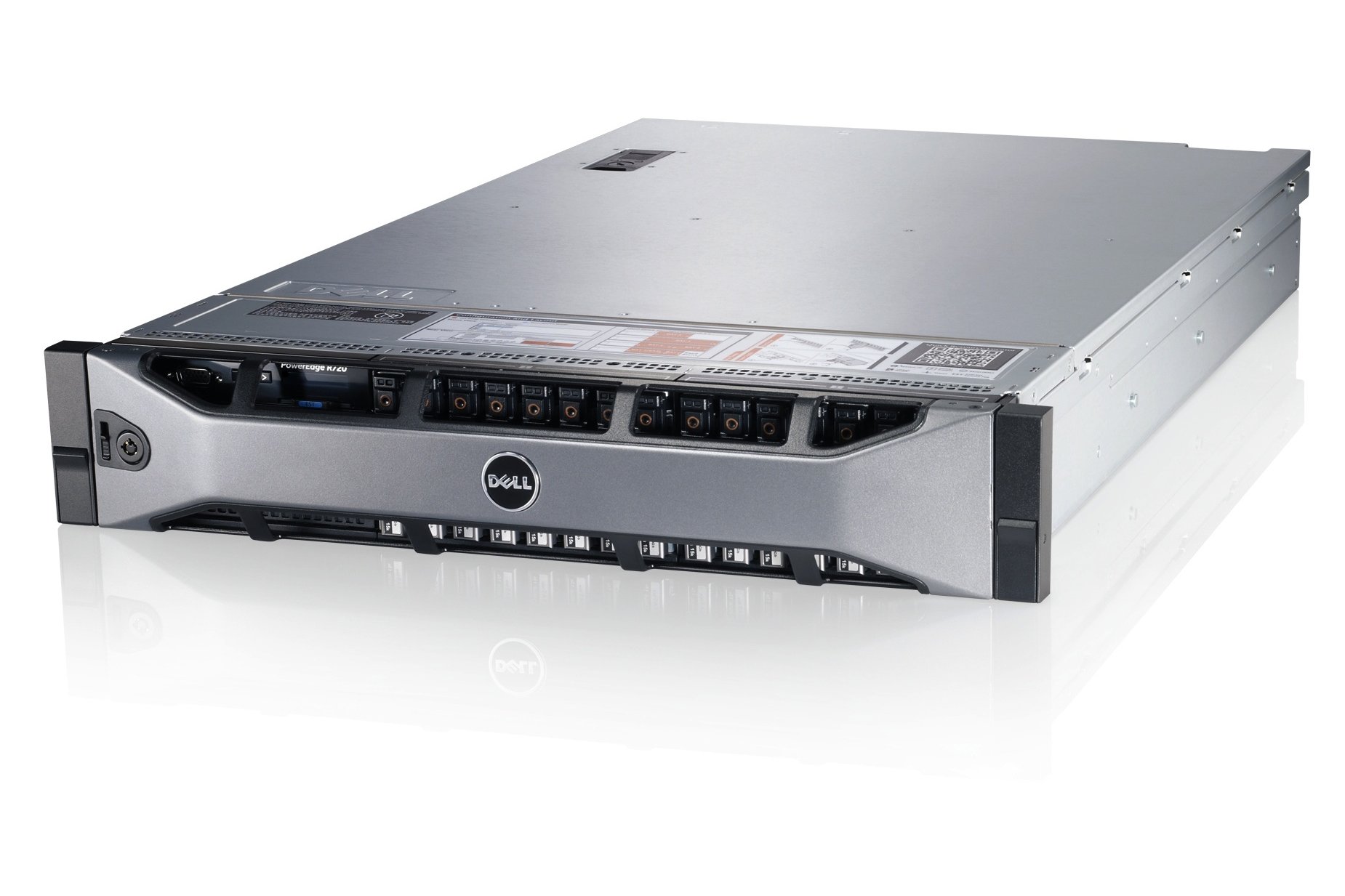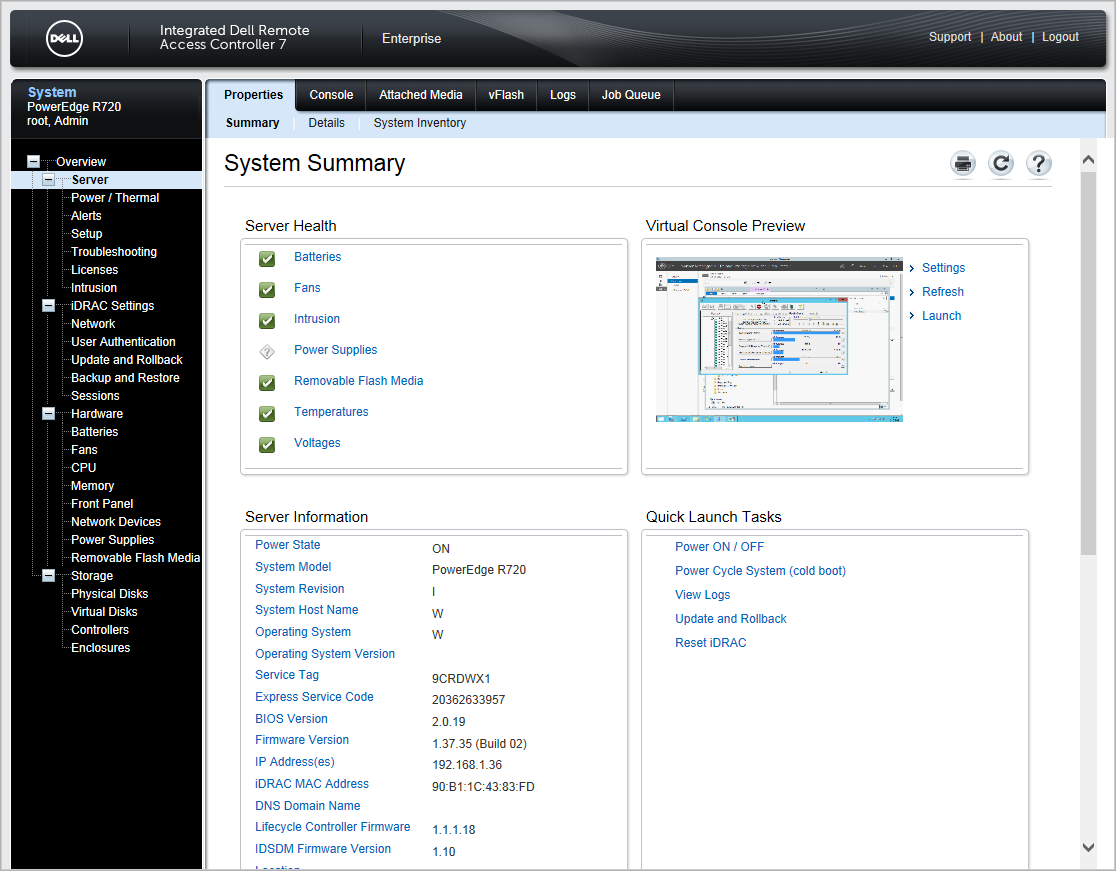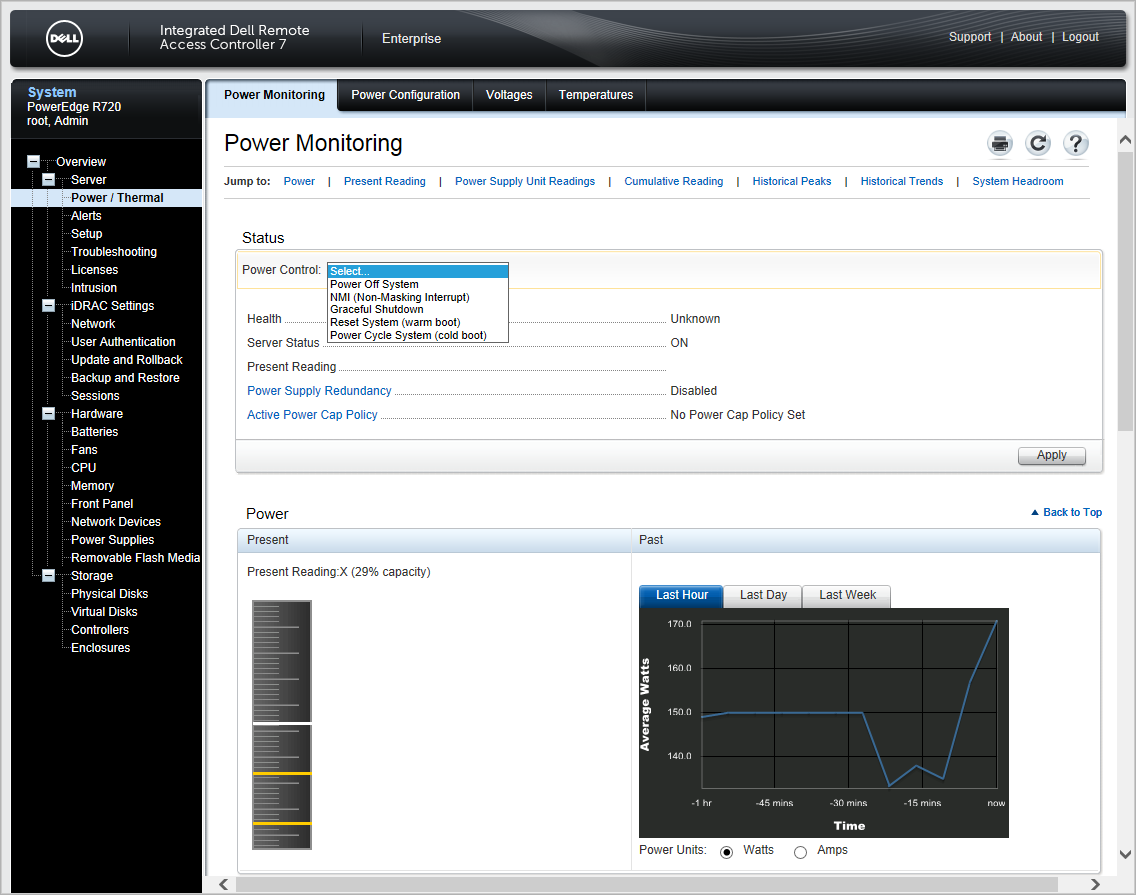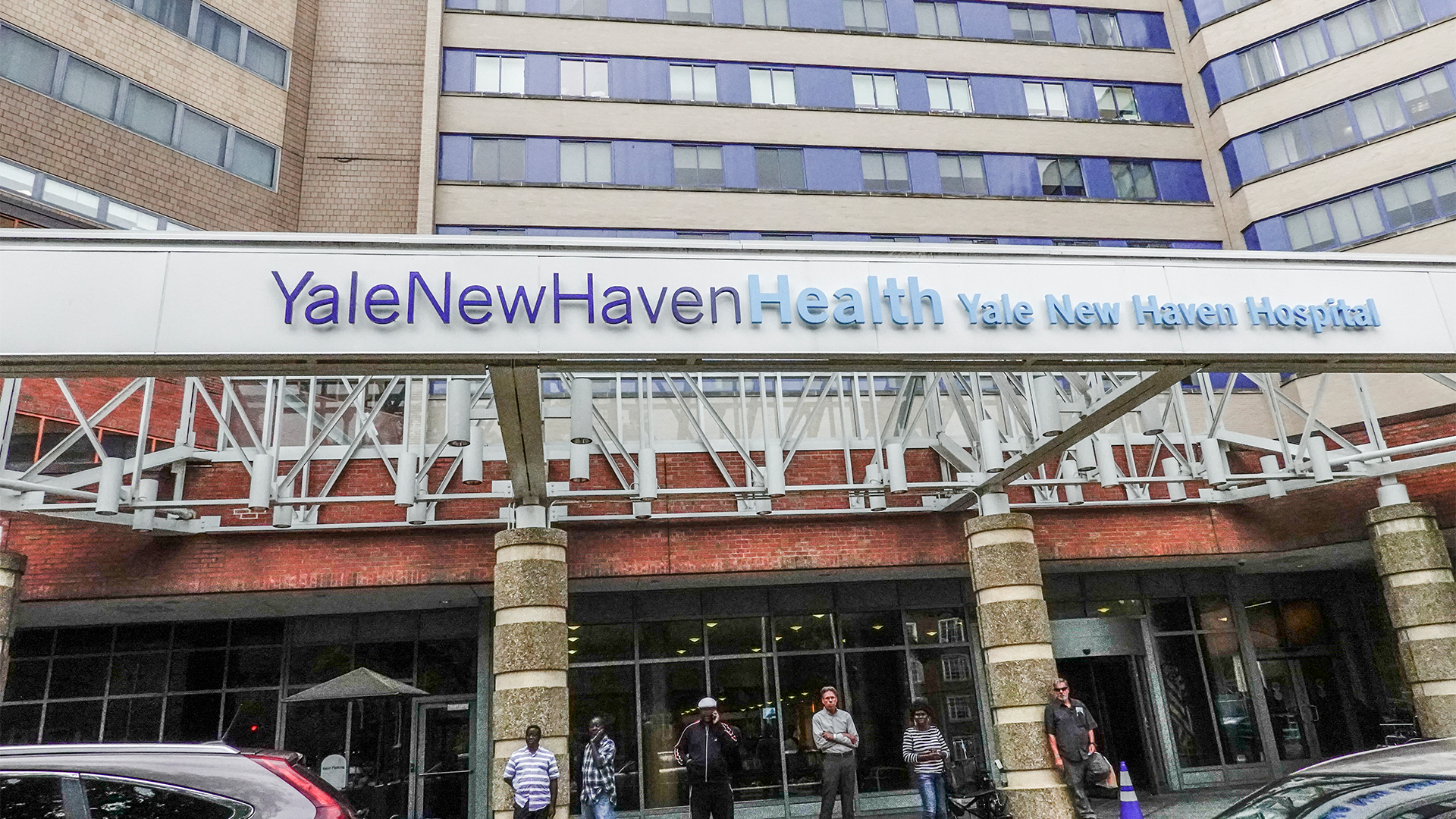Dell PowerEdge R720 (2014) review
Dell’s flagship 2U rack server gets a big boost with Xeon E5-2600 v2 CPUs, faster memory and lightning quick SSD read caching.


Dell’s PowerEdge R720 just keeps on getting better, making it well suited to running a wide range of business applications. Its E5-2600 v2 Xeons deliver more cores for less power, expansion potential is superb and its CacheCade feature can seriously boost read IOPS.
-
+
Supports E5-2600 v2 Xeons, superb design, high expansion potential, excellent virtualisation features
-
-
CacheCade still only accelerates read ops


Dell's iDRAC7 provides quality remote management features and can be easily upgraded to the Enterprise version.
Internal features
Dell hasn't changed anything significant internally but there's no need to as the R720 is already very well designed. The CPU sockets are accompanied by 24 DIMM slots supporting a maximum of 764GB and the price for the review system includes a healthy 128GB of 1,866MHz DDR3.
Cooling is handled by a bank of six hot-swap fans behind the drive backplane and noise levels are very low. The server also supports Dell's Fresh Air initiative for reducing data centre cooling costs and is certified to run reliably at up to 45 degrees Centigrade.
Dell scores over HP for virtualisation duties as its dual SD memory card controller is still unique. Fitting in a dedicated slot at the back of the chassis, it mirrors the primary boot media to provide hypervisor redundancy.
Expansion potential is excellent with seven PCI-e Gen 3 slots up for grabs. You have room for one 16X and three 8X full-height, full length cards and three 8X half-length, half-height cards the R720 also supports two double width GPU cards such as Nvidia's Tesla.

Remote power controls and monitoring can be accessed directly from the iDRAC7 web console.
Power and remote management
We hooked the server up to our inline meter and recorded a draw of 115W with Windows Server 2012 R2 in idle. Under maximum load from the SiSoft Sandra benchmarking app, this peaked at 322W.
In our exclusive review of the original PowerEdge R720 (web ID:639349), we measured this system drawing 120W in idle and 358W under load. The new E5-2600 v2 Xeons deliver on their power promises as the original system has a pair of 2.7GHz E5-2680 Xeons, half the memory and one less SFF hard disk.
The price we've shown includes Dell's iDRAC7 remote management controller with the Enterprise upgrade. It's well designed web interface provides a wealth of information about server operations and includes power graphing and monitoring.
You can start with the basic iDRAC7 Express card which is easily upgraded. The dedicated management port and front mounted vFlash slot for the Enterprise version are already fitted and just need a license key to be activated.
Conclusion
The PowerEdge R720 is an impressive rack server that crams an excellent range of features into its 2U chassis. Support for the new E5-2600 v2 Xeons give it even more processing density without an increase in power consumption and the CacheCade feature accelerates performance for read intensive applications.
Verdict
Dell’s PowerEdge R720 just keeps on getting better, making it well suited to running a wide range of business applications. Its E5-2600 v2 Xeons deliver more cores for less power, expansion potential is superb and its CacheCade feature can seriously boost read IOPS.
Chassis: 2U rack CPU: 2 x 2.8GHz Xeon E5-2680 v2 Memory: 128GB 1,866MHz DDR3 (max 768GB) Storage: 4 x 146GB Dell SAS 2 SFF; 2 x 200GB Intel S3700 SSD RAID: Dell PERC H710P Mini with 512MB cache/BBU/CacheCade Array support: RAID0, 1, 10, 5, 6 Expansion: 7 x PCI-e Gen3 slots Network: 4 x Gigabit Power: 2 x 750W hot-plug supplies Management: Dell iDRAC7 Enterprise with 10/100/vFlash Warranty: 3yrs on site NBD
Get the ITPro daily newsletter
Sign up today and you will receive a free copy of our Future Focus 2025 report - the leading guidance on AI, cybersecurity and other IT challenges as per 700+ senior executives
Dave is an IT consultant and freelance journalist specialising in hands-on reviews of computer networking products covering all market sectors from small businesses to enterprises. Founder of Binary Testing Ltd – the UK’s premier independent network testing laboratory - Dave has over 45 years of experience in the IT industry.
Dave has produced many thousands of in-depth business networking product reviews from his lab which have been reproduced globally. Writing for ITPro and its sister title, PC Pro, he covers all areas of business IT infrastructure, including servers, storage, network security, data protection, cloud, infrastructure and services.
-
 M&S suspends online sales as 'cyber incident' continues
M&S suspends online sales as 'cyber incident' continuesNews Marks & Spencer (M&S) has informed customers that all online and app sales have been suspended as the high street retailer battles a ‘cyber incident’.
By Ross Kelly Published
-
 Westcon-Comstor unveils new managed SOC solution for Cisco partners
Westcon-Comstor unveils new managed SOC solution for Cisco partnersNews Powered by Cisco XDR, the new offering will enable partners to tap into new revenue streams, the company said
By Daniel Todd Published
-
 More than 5 million Americans just had their personal information exposed in the Yale New Haven Health data breach – and lawsuits are already rolling in
More than 5 million Americans just had their personal information exposed in the Yale New Haven Health data breach – and lawsuits are already rolling inNews A data breach at Yale New Haven Health has exposed data belonging to millions of people – and lawsuits have already been filed.
By Emma Woollacott Published